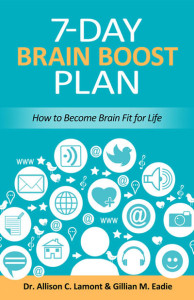Don’t you HATE that?
You set off to get something and by the time you reach where it is, you’ve forgotten what it was!
How come?
Is it an ‘old age’ thing?
Not really.
Dr Gabriel Radvansky, professor of psychology at the University of Notre Dame, says:
“When you go from room to room, your brain identifies each room as a new event and sets a new memory trace to capture the new event.”
So it’s going through a doorway that is causing the problem!
Radvansky’s team conducted memory experiments on college students in virtual and real-world rooms, some with doors, some without.He found that the students forgot more after walking through a doorway compared with moving the same distance across a room, no matter whether the door was a real one or a virtual one.
The door became an “event boundary”. The memory traces for the activity was stored according to where it happened.
“Recalling the decision or activity that was made in a different room is difficult because it has been compartmentalized,” Radvansky said.
So what can you do?
- keep firmly focused on the task you are carrying out. Avoid getting distracted.
- carry an object that reminds you of what you need to do e.g. if you go into another room for a pair of scissors, carry the object you want to cut or hold your fingers in a scissor shape.
- or, using the time-tested method, go back to where you started!
Want to read the full study?
https://www.tandfonline.com/doi/abs/10.1080/17470218.2011.571267?journalCode=pqje20&#abstract
For other practical solutions to everyday memory lapses, get your own handy guidebook 7-Day Brain Boost Plan from Dr Lamont & Gillian Eadie





Yes I have done this and when go to leave the room I remember
Isn’t the brain amazing? the more we know about how the mind works and stores information, the better we are at being in control over how we can help the brain to remember.
I will try this too. Your advice for always being able to find things like keys, wallet has been wonderful. Non dominant hand/cross centre line/ take mental photograph. I have told many of my friends and they are amazed by the results.
That’s fantastic, Jennifer. What an excellent set of memory traces you have created and, you are absolutely right, once you set up that memory habit, it really works for you.
I wonder if that door way thing would happen if you walked in backwards? Maybe the brain might not percieve that you were going into another room. Still, you might walk into something or trip over.
I just thought when you mentioned the scissors idea, why not even hold your fingers open like scissors. That would work as a memory jog. Probably there are easy other ones for different things.
Hi Gillian,
I bought your book a while ago and am just starting to read it. I have been jogged into action by a comment from my son that he and his wife have both noticed I am forgetting information made earlier in a conversation and then asking to have the information repeated.
There is no record of early dementia (my Mother died two years ago aged 99 and at that time only knew me and my young sister), but I am feeling quite scared and am spending too much time thinking about it. I am now afraid of it becoming a self fulfilling prophesy. I am 75, have a science degree and have worked for 40+ years first as a science teacher(23 years) and then as a counsellor( (14 years)- after going back to University to do a post graduate course in Counselling.
I have just looked at the list, in your book, on page 157 and, as yet, the only memory problem that I am aware of, as noted by my son, is “Repeating phrases or stories in the same conversation”
I guess I’m just posting this to off load my anxiety to some who knows about memory loss etc. Do you discuss “memory traces” in your book?
Good thinking, Lorna! Even walking backwards, it is likely the connections would still stay with the room in which you are currently placed. There is the added bonus though that walking backwards (carefully) requires your brain connections to fire in a different way from normal. So it is useful brain practice at any time. Certainly holding your fingers like scissors would work as a memory trace. Keep up your thinking around ways to keep your mind working well for you – everything helps!
Hello Lindy, I’m so glad you are thinking about ‘memory matters’ at present – it is the perfect time to start taking notice of how you are remembering and what you need to do to help overcome the occasional lapses. It is statistically unlikely that there is a family connection (see https://www.brainfit.world/2015/01/22/will-i-get-alzheimers-too/) but it is true that memory changes happen to all of us after the age of 50 or so and to overcome them, we have to actively stay aware of what we are doing, saying and noticing. To recall well, it is important that your brain KNOWS what is important to you. If it is a priority to be sure that you are not repeating yourself, then training yourself to stay ‘on the alert’ while you are engaged in conversation will be an important skill. It is so easy to let the mind drift! You are in control of that and only you can make the determined effort to avoid repetition. Memory traces are mentioned several times through the book – and we have also used the more familiar terms ‘associations’ and ‘connections’. They all refer to the same process of using strategies to make information memorable for you and your brain. Don’t worry too much! Anxiety can impede memory skills too so aim for a relaxed approach while still staying alert and ‘in the moment’ as you put the memory techniques in place. Do keep in touch and let us know how you find the memory strategies working for you.
Comment : Well, I had totally forgotten my posting on August 27th last year! Just found it by chance whilst tidying up my desk top! Since then I have, (very recently) signed up for your ecourse “Healthy Memory Workout”
Lindy
We hope you enjoy it! Actually, it is a book of brain challenges and tips for approaching problem-solving so not actually a course, as such. I am sure you will enjoy the exercises, though. Our premium course, Memory Tune, is a guided series of 14 sessions which takes you through step-by-step the memory strategies and practice to help embed your new skills. Maybe you would like to try it sometime. https://www.brainfit.world/product/memory-tune/ Have fun with Healthy Memory Workout in the meantime!
Yes- happens to me
Bev
I think almost EVERYONE has experienced this!
Ladies – I read every word you send out. That course all those years ago has been well worth every cent. I have just moved to a new Village. Packing, unpacking, remembering where to find things in new surroundings to say nothing of a new phone number is hugely challenging for a ninety-year-old. I am constantly visualizing and connecting as learned in the course. Thank you SO much.
Cheers
Pauline
We are so pleased that you are still using all of your strategies, Pauline. Well done! You are a role model for all of us!
I have days when I forget words, & that can be very tricky when you are trying to tell a friend something & every few words are missing.
That is such a common experience and many of our readers will know exactly what you mean. Memory let-downs like this can undermine confidence which is why we are trying very hard to help as many people as possible with our brain training, Brainfit for Life classes and newsletters. We CAN be in control of the way we recall – it takes knowledge and practice!